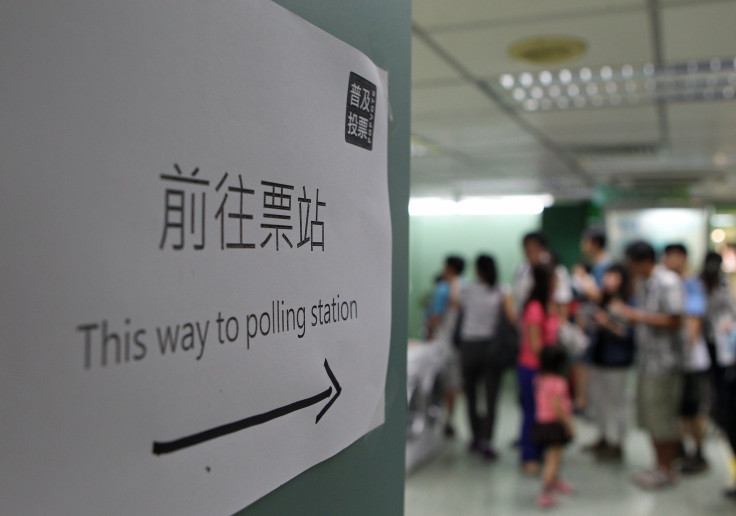Hong Kong Elections 2015: 400 Cases Of Voter Registration Fraud 'The Tip Of The Iceberg'

Two political parties in Hong Kong filed formal complaints Tuesday, alleging that more than 400 voters had registered for the city's upcoming elections with suspicious personal information. The Labour Party and Civic Party, both considered pro-democracy, said those cases of purported voter fraud were "only the tip of the iceberg" and called for a full probe, the South China Morning Post reported.
The groups said some voters submitted paperwork that provided false addresses or referred to apartments shared by as many as eight people. The cases were clustered in districts such as Tsuen Wan, Mei Foo Sun Chuen and Hung Hom. A spokesman with the Registration and Electoral Office told the Post that staffers would check up on the allegations, but activists said the suspicious filings could cause citizens to distrust the system.
"The electoral office should take it seriously and proactively launch an investigation," Labour's Mak Tak-ching told the Post.
Tuesday was the final day for registered voters to change their addresses or other data on file with the electoral office ahead of the Nov. 22 district council elections. Residents will pick 431 representatives in the first election since last year's protests, or Umbrella Revolution, which saw thousands of people participate in sit-ins against electoral reforms they argued impeded democracy. Protesters demanded that Hong Kong have greater autonomy when it comes to selecting their chief executive, candidates for which have to be approved by a special, pro-Beijing committee. A reform bill that would have allowed universal suffrage but kept the China-run vetting process failed in June, leaving activists' future plans unclear, International Business Times previously reported.
The Labour and Civic parties' complaints weren't the first to question the validity of voter registrations. Earlier this month, a man alerted the media that he discovered someone had changed his address and forged his signature on his forms. In another instance, at least three people registered with a hotel as their address, Coconuts HK reported. The Democratic Party's Chong Wing-fai told reporters the fake registrations could mean "there’s vote-rigging involved."
In response, Electoral Affairs Commission Chairman Barnabas Fung Wah told the Standard the office would start requiring additional evidence for people attempting to submit paperwork with nonresidential addresses. "Many suspicious addresses are, in fact, the principal addresses," he said. "According to U.N. human rights clauses, one should enjoy voting rights even without a conventional address."
© Copyright IBTimes 2024. All rights reserved.












